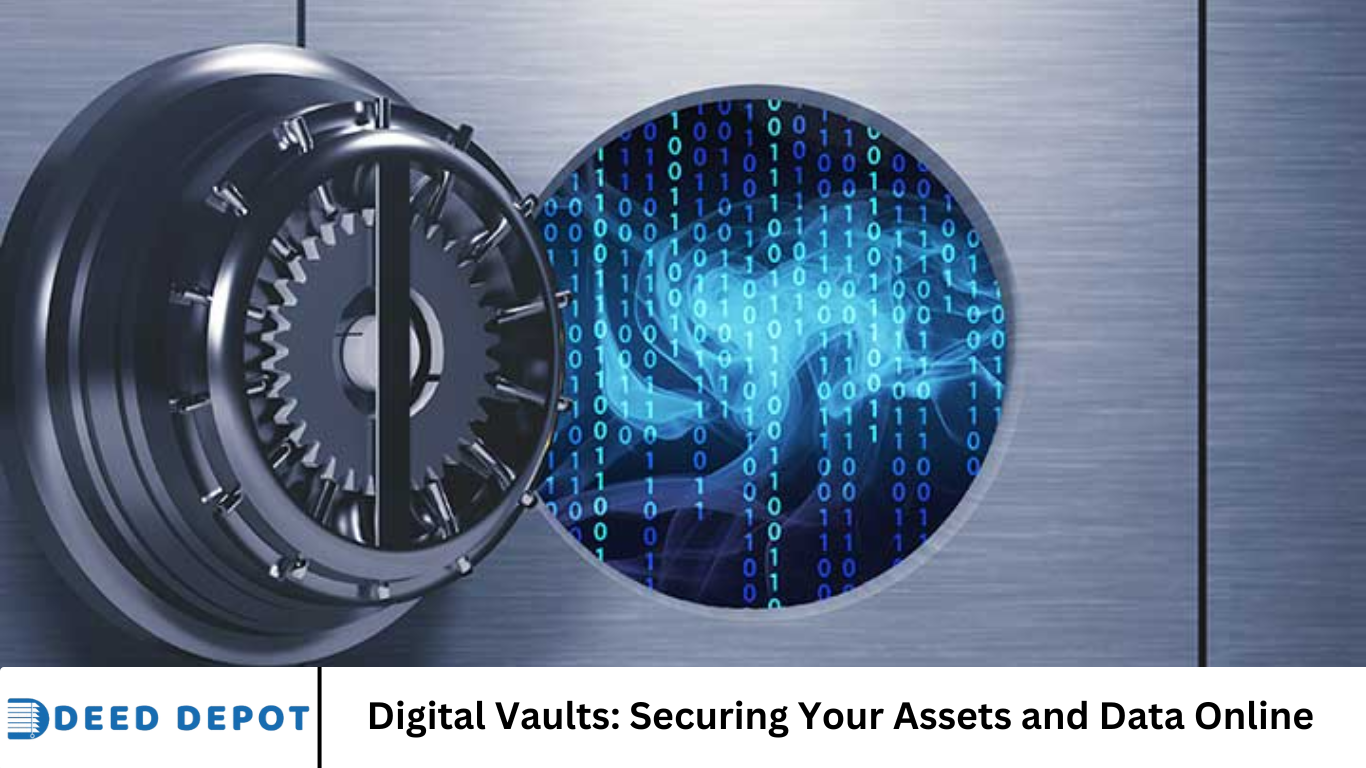Digital age, safeguarding sensitive information is more critical than ever. With the increasing reliance on online platforms for storing personal and professional data, the risk of cyber threats has escalated.
Digital vaults have emerged as a robust solution to protect valuable digital assets. This article delves into the concept of digital vaults, their benefits, features, and how they can be instrumental in securing your data online.
What is a Digital Vault?
A digital vault is a secure, cloud-based repository designed to store and manage sensitive digital information. Think of it as a virtual safe deposit box where you can keep critical documents, passwords, financial records, and other confidential data. These vaults employ advanced encryption and security protocols to ensure that only authorized individuals can access the stored information.
Importance of Digital Vaults
1. Enhanced Security
Digital vaults utilize bank-level security measures, including 256-bit AES encryption and two-factor authentication, to protect data from unauthorized access. This level of security is crucial for both individuals and businesses to prevent data breaches and cyberattacks.
2. Centralized Data Management
With the proliferation of digital data, managing and organizing information can be challenging. Digital vaults provide a centralized platform where users can store all their essential documents, making data management more efficient and streamlined.
3. Secure Sharing and Collaboration
In professional settings, sharing sensitive information is often necessary. Digital vaults offer secure sharing features that allow users to grant access to specific individuals, ensuring that confidential data remains protected during collaboration.
4. Disaster Recovery and Backup
In the event of data loss due to hardware failure, natural disasters, or cyber incidents, digital vaults serve as a reliable backup solution. Their cloud-based nature ensures that data can be recovered and restored promptly, minimizing downtime and data loss.
Key Features of Digital Vaults
1. Advanced Encryption
Digital vaults employ robust encryption methods to protect data both at rest and in transit. This ensures that even if data is intercepted, it remains unreadable without the proper decryption keys.
2. Multi-Factor Authentication (MFA)
To add an extra layer of security, digital vaults often require MFA, which combines something the user knows (password) with something they have (a mobile device) to verify identity.
3. Audit Trails and Activity Logs
Comprehensive audit trails allow users to monitor who accessed the vault, when, and what actions were taken. This transparency is vital for compliance and security auditing.
4. User Access Controls
Administrators can define user roles and permissions, ensuring that individuals only access data relevant to their responsibilities. This minimizes the risk of internal data breaches.
5. Integration Capabilities
Modern digital vaults can integrate with other software and platforms, such as document management systems and email clients, to enhance functionality and user experience.
Use Cases for Digital Vaults
1. Personal Use
Individuals can store personal documents like passports, wills, medical records, and financial statements in digital vaults. This ensures that critical information is accessible when needed and protected from unauthorized access.
2. Business Applications
Businesses can utilize digital vaults to store sensitive corporate data, including contracts, employee records, and proprietary information. This not only secures the data but also facilitates compliance with data protection regulations.
3. Estate Planning
Digital vaults play a crucial role in estate planning by securely storing wills, trusts, and other legal documents. Authorized individuals can access these documents when necessary, ensuring a smooth transition of assets.
4. Healthcare Sector
Healthcare providers can store patient records and sensitive medical information in digital vaults, ensuring compliance with regulations like HIPAA and safeguarding patient privacy.
Choosing the Right Digital Vault
When selecting a digital vault, consider the following factors:
- Security Features: Ensure the vault offers robust encryption, MFA, and regular security updates.
- User-Friendliness: The platform should be intuitive and easy to navigate for all users.
- Scalability: Choose a solution that can grow with your needs, accommodating more data and users as required.
- Customer Support: Reliable customer service is essential for addressing any issues or concerns promptly.
- Compliance: Verify that the vault complies with relevant data protection laws and industry standards.
Frequently Asked Question
What is a digital vault?
A digital vault is a secure, encrypted online storage space designed to protect sensitive data like passwords, financial documents, personal records, and business files. It functions like a virtual safe deposit box, accessible only by authorized users.
How does a digital vault protect my data?
Digital vaults use strong encryption (often AES-256), multi-factor authentication (MFA), secure access controls, and real-time monitoring to safeguard your data from unauthorized access, cyberattacks, and accidental loss.
What types of data should I store in a digital vault?
You can store various sensitive assets such as:
- Legal documents (wills, contracts)
- Financial records (bank statements, tax returns)
- Login credentials and passwords
- Identity documents (passports, driver’s licenses)
- Medical and insurance information
Are digital vaults safe to use?
Yes, reputable digital vaults are very safe when used properly. They implement enterprise-grade security standards, often exceeding those of traditional cloud storage services, and are regularly audited for vulnerabilities.
Can I access my digital vault from any device?
Most digital vaults are cloud-based, allowing access from any internet-enabled device (computer, tablet, smartphone). However, access typically requires secure login procedures to ensure protection across devices.
What happens to my data if the vault provider goes out of business?
Reliable digital vault providers usually have contingency plans, such as data export options or third-party escrow services. Always choose a provider that allows you to download or back up your stored data independently.
Who should use a digital vault?
Everyone can benefit from using a digital vault:
- Individuals for storing personal documents and passwords securely.
- Businesses for protecting intellectual property, client information, and internal data.
- Families for managing estate plans, insurance records, and emergency documents.
Conclusion
Digital vaults have become indispensable tools in the modern digital landscape, offering unparalleled security and convenience for storing sensitive information. Whether for personal use or business applications, implementing a digital vault can significantly enhance data protection and peace of mind. As cyber threats continue to evolve, adopting such secure solutions is not just advisable but essential.


